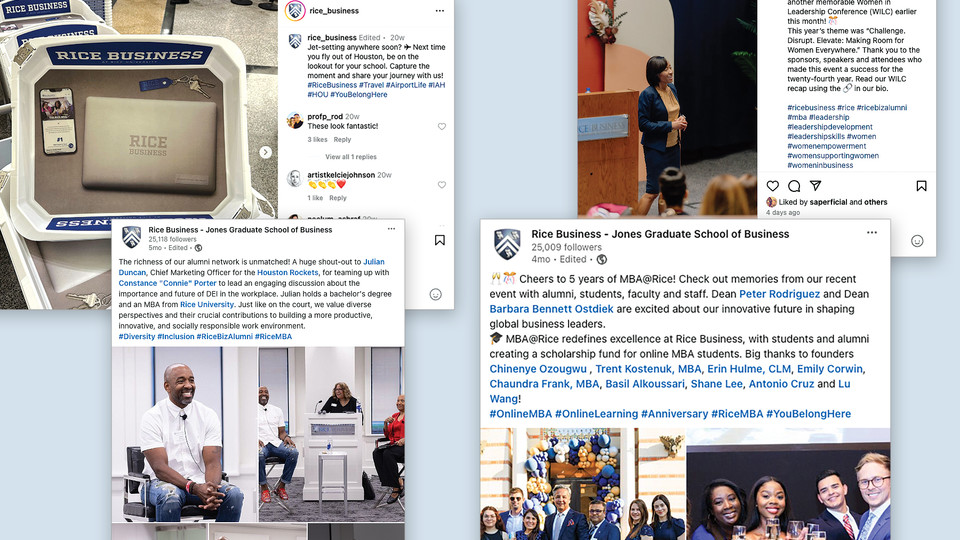
A Simmering Crisis

More than one-third of the world’s population is cooking meals over open fires, without access to modern cooking technology. The result: health risks associated with indoor air pollution. It’s a topic not often discussed, but Dymphna van der Lans ’02 is speaking up.
Dymphna van der Lans remembers the day her family got a set of encyclopedias and placed them on a low shelf so she — at 8 years old — could access the world. She sat down that day and dove in to read about China. “My world was still so limited to my family and my school and my surroundings,” says van der Lans, who is from the Netherlands. “I couldn’t really comprehend that there was a country out there that was so significantly different from my own lived experience. I had this realization at a very young age that I didn’t know the world, and it was there to be explored.”
She describes that moment as a spark — one that would eventually lead her to adventures in China, India, Kenya, and island nations in the Caribbean and the Indian and Pacific Oceans. She learned to speak Chinese — studied it fully, in fact — during her undergraduate years at Peking University and at Leiden University, where she earned a master’s in Chinese language, economics and law.
But the more van der Lans explored the world, the more she discovered about the complex issues that face both the planet and those inhabiting it: the energy transition, disrupted supply chains, armed conflicts and threats to wildlife.
These issues are regularly examined by researchers and debated in media outlets. But when van der Lans began working with the UN Foundation as the CEO of the Clean Cooking Alliance (CCA), she faced a challenge no one seemed to be talking about — global access to “clean cooking” with modern technologies and fuels that prevent deadly indoor air pollution.
When van der Lans talks about clean cooking, she isn’t referencing the debate over gas versus electric, which many assume. She is focused on the millions of people living largely in remote areas of the Global South who are cooking over open fires or on clay stoves. These cooking methods require hours of daily preparation and can expose cooks and other family members to dangers in their own homes like severe burns, smoke inhalation and exposure to harmful indoor pollutants. “People have no idea,” van der Lans says, “including lots of people who come from regions where it’s a prevalent issue.” In Nepal, for example, 69% of households use biomass fuels (wood, charcoal, dung and agricultural waste) and open fires for cooking.
“It’s unacceptable to me,” van der Lans says, “that we’re building the technologies to check washing machine cycles and refrigerator levels on our phones, but we have yet to make clean and safe food preparation accessible to a third of the global population. There’s no department or ministry dedicated to this problem, so it falls through the cracks.”
As a result, she says, the issue of clean cooking never gets appropriate attention or appropriate funding.
Van der Lans is set on changing that.
Rejoice Ntiriwaa tells a story of her childhood. Her least favorite chore in her home in Effiduase Koforidua, in the eastern region of Ghana, was to help her grandmother dress the family’s clay stove with mud. It was, Ntiriwaa says, a task she “detested with all her being.” She didn’t like that clay stove and the time it took away from her childhood activities, but she later realized it was a true hazard when she learned that her great-grandmother had to undergo surgery to treat a cataract caused by smoke emissions. “What would have happened to her if she had not been able to pay for the procedure at that time?” she says in Vantage Point, a newly launched digital magazine from the CCA.

Luckily for Ntiriwaa’s great-grandmother, a surgery was feasible, both physically and financially. But women across the globe may fare far worse without access to modern cooking equipment, often succumbing to cancer or other issues related to indoor air pollution brought on by preparing meals for their families. The fact that women face illness while working to feed themselves and their families did not sit well with Ntiriwaa.
It doesn’t sit well with van der Lans either. “Anytime you have inefficient combustion particles float up in the air,” she says, “they make their way into the lungs of women and the babies they carry on their backs.” Van der Lan’s team of 50 works on policy with local governments and helps industries think through the challenges of access to clean cooking, including embracing cultural norms in the process.
“We know that the technologies exist, we just need to make sure women have access to them and that they are affordable.”
CCA also works with entrepreneurs — including women who have experienced the issue firsthand — to support new solutions and has trained more than 5,000 women entrepreneurs, youth and educators. “There are a lot of women in Africa, specifically, who are young entrepreneurial spirits and advocates who have lived through this issue and are now putting their intellect, energy and power behind addressing the problem. They are developing technologies specific to their culture and regions and then running the companies that build and distribute that technology. Our job is to support them — financially and otherwise — in achieving their organizational goals.”
Ntiriwaa is one of those women. After a childhood spent preparing the family clay stove, she went on to become an engineer, researcher and lecturer at Cape Coast Technical University in Ghana, focused on bioenergy, renewable energy systems design and alternative cooking fuel, not just in the home but in business as well.
“Seventy percent of the dirty fuels in this country are used by small and medium-sized businesses that process food, yet they suffer attention deficit in the engineering design of efficient stoves,” Ntiriwaa says in Vantage Point.
“Our research team conducted a survey, and the results showed that the design characteristics, such as ergonomics, fuel neutrality and ability to support the weight of meals, are among the primary factors influencing people’s choice of cooking energy. We need to fund regional research because different cultures and traditional foods call for different cooking techniques.”
That funding is important — CCA itself has invested US$17.8 million in research, resulting in more than 60 peer-reviewed publications on the impacts of household air pollution and the benefits of clean cooking — but perhaps more so is the empowerment of women to be a part of the process. “Women make many cooking decisions at the household level, so empowering them to understand the clean cooking value chain improves their way of life,” says Ntiriwaa, who earned one of CCA’s 2022 Women Leaders Awards. “Collectively, their demand for stoves and fuels would begin to shift to cleaner options, forcing suppliers to think of new ways to meet end users’ needs. Their contribution is significant, regardless of where they are in the clean cooking value chain.”
CCA has a goal: universal clean cooking access by 2030. They aim to achieve it through investment in entrepreneurs and industries willing to tackle the problem, by raising awareness to drive consumer demand and by using data to drive policy.

This is not an issue with one simple solution. It requires systemic change. Thanks to recognition and support from local governments and agencies like the Alternative Energy Promotion Centre, CCA has launched projects in key areas where the issue is most prevalent. In Nepal, for example, with nearly 70% of its population using biomass fuels and open fires, CCA worked with local governments to create a detailed plan to help the area transition completely to clean cooking by 2028. The plan includes financial assistance for families and ongoing government support. This will enable nearly 1 million homes to transition to electric cooking appliances. It will also facilitate the adoption of off-grid systems in rural areas. The goal is for 100% of homes in the region to use clean cooking methods within the next four years.
It can feel like a daunting task. But CCA is making massive strides. According to its 2023 Industry Snapshot, investments in clean cooking enterprises grew to an all-time high of $215 million in 2022. Revenue in clean cooking industries also broke records with $104 million in 2022. CCA itself has issued more than $8.4 million in grants to companies, more than $2 million for gender-focused projects and has reached 40 million people through campaigns.
When van der Lans took the CEO seat six years ago, she attended a Conference of the Parties (COP), the annual UN Climate Change Conference, and found only one session on clean cooking hidden away in a back room. When she attended the most recent COP in Dubai in December 2023, there were 20 sessions focused on clean cooking, including one at center stage. CCA estimates that through their work, they have reached 100 million people with information on the importance of clean cooking. She’s proud that the issue is receiving increased and appropriate attention. At the same time, she knows there’s work to do and is concerned that all the attention in the world doesn’t mean much if the solutions aren’t funded. “Raising the issue and creating awareness and educating people means nothing, zero, if it doesn’t lead to more funding to address the problem.”
Van der Lans aims to end the harm that unsafe and polluting cooking methods have on women’s health and economic prospects. To that end, she wants clean cooking solutions to become so widely understood that she no longer has to explain the problem. And she hopes people think more often about the lesson we all eventually learn, as she did at 8 years old with an encyclopedia in hand: Many people around the world face challenges that are vastly different from our own lived experience. They grapple with problems that often go unnoticed. For many, even accomplishing the basic task of boiling water presents hardship that deserves our attention and action.


